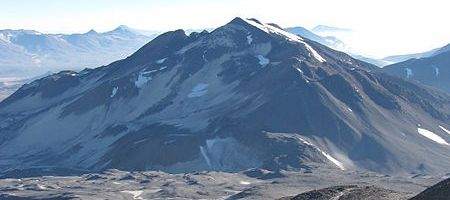Glaciers in the Andes are retreating faster than ever, say researchers, with global warming causing them to shrink by as much as half since the 1970s.

The region’s warmed by about 0.7°C over the past 50 years. And the result, says the team, is that since the 1970s, glaciers in the tropical Andes have been melting faster than in the past 300 years, shrinking by an average of 30 to 50 percent.
The melting’s worst in small glaciers at low altitudes: those below 5,400 meters have lost about 1.35 meters in ice thickness per year since the late 1970s, twice as much as larger, high-altitude glaciers.
“Because the maximum thickness of these small, low-altitude glaciers rarely exceeds 40 metres, with such an annual loss they will probably completely disappear within the coming decades,” says Antoine Rabatel, of the Laboratory for Glaciology and Environmental Geophysics in Grenoble, France.
The researchers say that the amount of rainfall in the region hasn’t changed much over the past few decades, and therefore can’t be blamed for the glacier retreat. It’s climate change, they say, with regional temperatures increasing by an average of 0.15°C per decade between 1950 and 1994.
“Our study is important in the run-up to the next [Intergovernmental Panel on Climate Change] IPCC report, coming out in 2013,” says Rabatel. This is because the IPCC regards tropical glaciers as key indicators of climate change, as they’re particularly sensitive to temperature changes.
The authors warn that the melting of the glaciers could present significant problems for the communities that depend on them for water. The Santa River valley in Peru will be most affected, they write, as its hundreds of thousands of inhabitants heavily rely on glacier water for agriculture, domestic consumption, and hydropower.
Large cities, such as La Paz in Bolivia, could also face shortages. “Glaciers provide about 15 percent of the La Paz water supply throughout the year, increasing to about 27 percent during the dry season,” says Bolivian researcher Alvaro Soruco.






